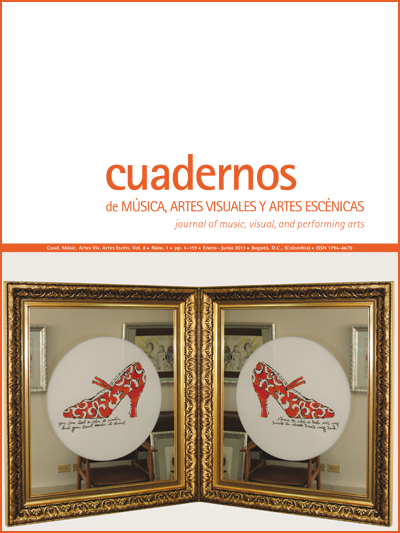Abstract
In the Antiquity, music was defined in terms of memory, not of temporality. By a writing artifice, Western music begins to consider itself as a temporal art. In the diastematic notation, duration is related to a line whose properties –divisibility, homogeneity, continuity– are assigned to the time gradually. Due to this relation, the number, the proportion and the geometric spirit can be applied to the duration. Only then a properly musical time starts to be discussed. With the development of the writing on musical staff, the fundamental philosophical problem for music is the rational construction of time. Throughout this essay, a historical pursuit is made to the process that gives rise to this construction. Also, the epistemological implications of this concept are put in evidence since the parallel between the concepts of time in the musical score and time developed by Western science.This journal is registered under a Creative Commons Attribution 4.0 International Public License. Thus, this work may be reproduced, distributed, and publicly shared in digital format, as long as the names of the authors and Pontificia Universidad Javeriana are acknowledged. Others are allowed to quote, adapt, transform, auto-archive, republish, and create based on this material, for any purpose, provided the authorship is duly acknowledged, a link to the original work is provided, and it is specified if changes have been made. Pontificia Universidad Javeriana does not hold the rights of published works and the authors are solely responsible for the contents of their works; they keep the moral, intellectual, privacy, and publicity rights.
Approving the intervention of the work (review, copy-editing, translation, layout) and the following outreach, are granted through an use license and not through an assignment of rights. This means the journal and Pontificia Universidad Javeriana cannot be held responsible for any ethical malpractice by the authors. As a consequence of the protection granted by the use license, the journal is able to publish retractions or to correct information already published. Publishing contents in this journal does not generate royalties for contributors.


